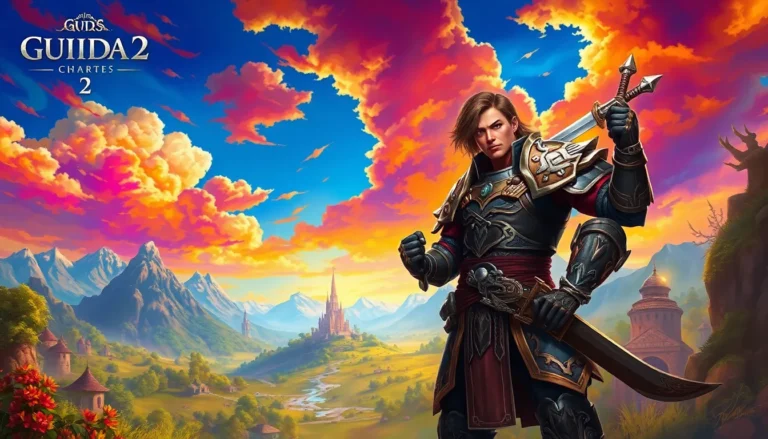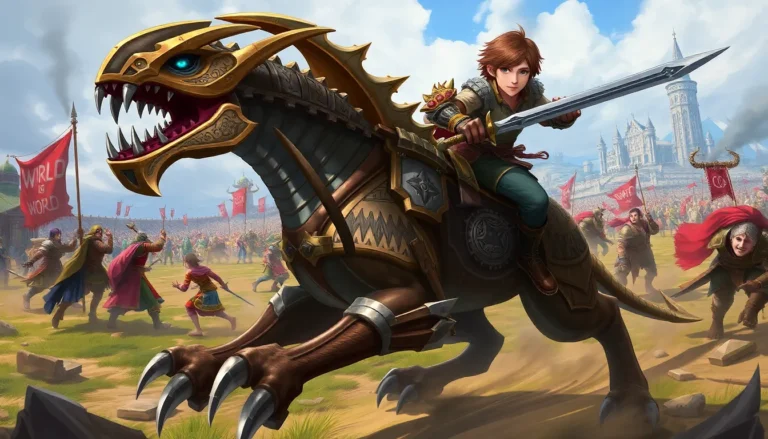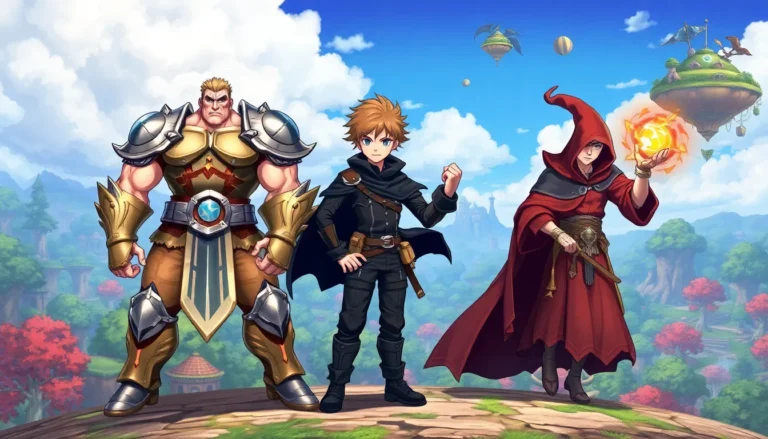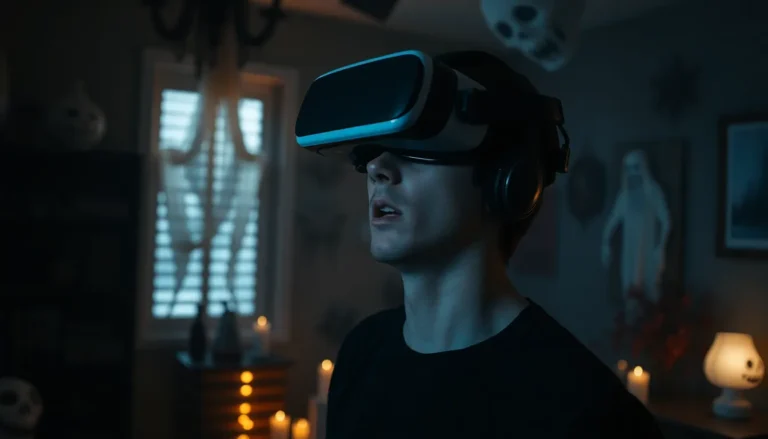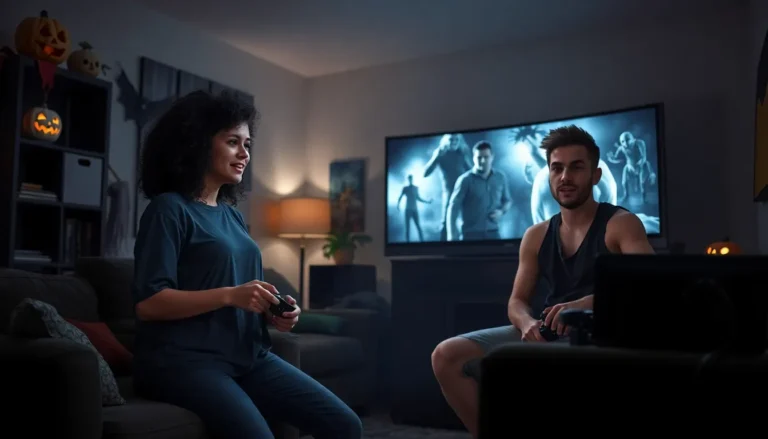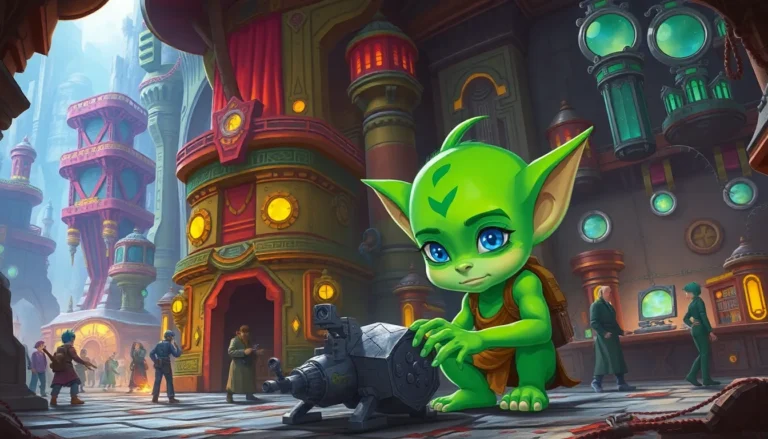Table of Contents
ToggleIn a world where jump scares lurk around every corner and eerie soundtracks send shivers down spines, horror game developers are the unsung heroes crafting nightmares that keep players awake at night. These creative masterminds blend storytelling with spine-tingling gameplay, turning ordinary rooms into haunted houses and unsuspecting characters into chilling threats.
From crafting unsettling atmospheres to designing grotesque monsters, these developers know how to tap into our deepest fears. They’re not just making games; they’re creating immersive experiences that haunt players long after the screen goes dark. So grab your flashlight and prepare for a thrilling journey into the minds of those who dare to push the boundaries of fear in gaming. Who knows? You might just find your next favorite fright fest lurking in the shadows.
Overview of Horror Game Developers
Horror game developers create unique digital experiences that immerse players in chilling narratives. They craft eerie worlds filled with suspense and dread, turning ordinary locations into settings for nightmares. By integrating compelling storytelling with interactive gameplay, these developers evoke deep emotional responses.
Numerous studios are renowned for their contributions to the genre. For example, Konami’s “Silent Hill” series redefined psychological horror with its disturbing atmosphere and intricate narratives. Capcom followed suit with “Resident Evil,” merging survival horror with action elements, garnering a massive fan base.
Independent developers also play a significant role in horror gaming. Games like “Amnesia: The Dark Descent” by Frictional Games showcase how small teams can deliver groundbreaking horror experiences. Their focus on storytelling, atmosphere, and minimal reliance on combat creates a unique tension for players.
Innovative techniques further enhance horror games. Developers utilize sound design to amplify the sense of fear, with eerie background noises and unsettling soundscapes. Visual elements, such as unsettling graphics and lighting, contribute to the game’s ambivalence and disorientation.
The success of horror games often hinges on understanding player psychology. Developers analyze common fears, such as isolation, the unknown, and loss of control, weaving these themes into their narratives. This approach ensures that players remain engaged throughout their experience.
With an emphasis on creating impactful moments, horror game developers continue to push boundaries. Their ability to test the limits of fear keeps the genre evolving. Enthusiasts eagerly await new releases that promise fresh nightmares, affirming the ongoing appeal of horror games in the gaming industry.
Notable Horror Game Developers
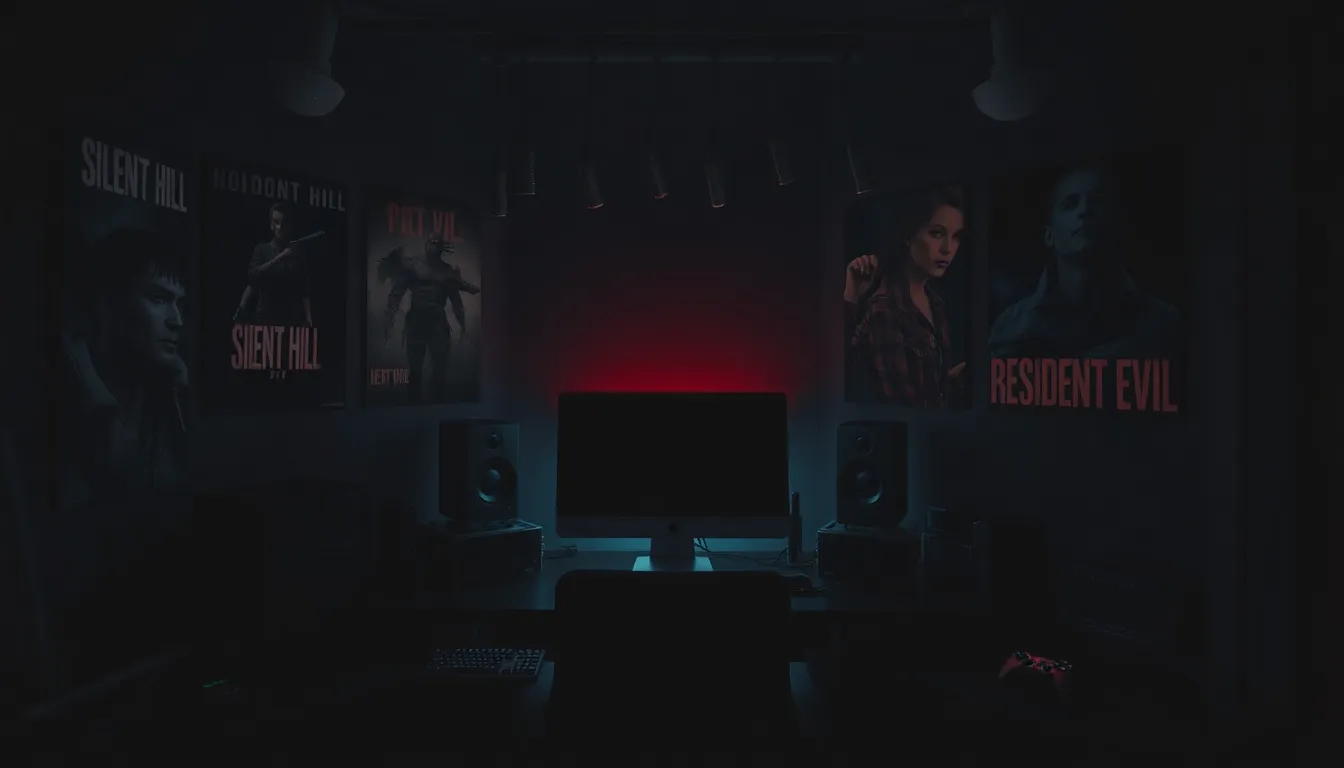
Horror game developers play a crucial role in shaping the genre. They create unique experiences that engage players through fear and tension.
Developer Profiles
Konami remains a leading force in horror game development, known for its iconic titles like “Silent Hill.” This franchise emphasizes psychological horror, showcasing characters that evoke sympathy while facing terrifying circumstances. Capcom also holds a prominent position with “Resident Evil,” which expertly blends survival horror with action elements, captivating a wide audience. The innovative work of Frictional Games can’t be overlooked; “Amnesia: The Dark Descent” showcases their ability to craft atmosphere through engaging narratives and immersive gameplay. Other emerging indie developers challenge conventions, exploring fresh ideas and pushing the boundaries of horror.
Key Contributions
Konami revolutionized horror by introducing complex narratives. Their focus on atmosphere profoundly shaped player expectations in the genre. Capcom’s “Resident Evil” franchise brought survival mechanics into the spotlight, forcing players to balance resource management with survival instincts. Frictional Games inspired countless indie developers, demonstrating that storytelling holds immense power in horror. Notably, developers like Bloober Team with “Layers of Fear” excel in cultivating psychological tension through environmental storytelling. Each studio contributes uniquely, collectively enriching the horror gaming landscape and ensuring the genre continues to evolve.
Development Trends in Horror Games
Horror game developers are constantly evolving to create more engaging experiences. Recent trends showcase their commitment to innovation.
Innovations in Game Mechanics
Developers leverage game mechanics that heighten immersion. Interactivity now plays a crucial role, allowing players to impact the environment. Feature integration, such as variable outcomes based on choices, enhances emotional stakes. Game physics receive attention, creating realistic movement and physics-based puzzles that immerse players further. Asynchronous multiplayer modes introduce unique dynamics, fostering tension among participants. Enhanced AI behaviors also drive unpredictability, challenging players to adapt constantly.
Storytelling Techniques
Storytelling in horror games adopts multidimensional approaches. Narratives often unfold through environmental clues, encouraging exploration. Developers incorporate nonlinear storytelling that allows players to shape their own experiences. Character development remains vital, with protagonists facing moral dilemmas that resonate with players. Emotional depth is prioritized, increasing player attachment and investment in outcomes. Developers increasingly utilize psychological horror elements, drawing from fears and anxieties players encounter in real life. This combination of character-driven narratives and immersive storytelling engages audiences at profound levels.
Challenges Faced by Horror Game Developers
Horror game developers encounter unique challenges that impact their creative processes and final products.
Budget Constraints
Limited budgets often restrict the scope of horror game projects. Smaller studios may struggle to secure sufficient funding for advanced technology or experienced talent. High-quality sound design elevates the emotional impact of a game, yet it may fall beyond budgetary constraints. Visual assets demand significant resources, and without adequate funding, ambitious projects may scale back their artistic visions. Independent developers frequently depend on crowdfunding or partnerships to overcome financial barriers. The balance between creating a chilling atmosphere and managing costs creates an ongoing challenge for many in the industry.
Audience Expectations
High audience expectations add pressure on horror game developers. Players often anticipate innovative mechanics and immersive storytelling. Many fans compare new releases to classics like “Silent Hill” and “Resident Evil,” raising the stakes for developers. Emotional engagement remains vital, pushing developers to create compelling narratives. Varied responses to horror elements can lead to polarized player reviews, making it difficult to please everyone. As developers strive to meet these expectations, they must navigate the delicate line between originality and familiarity. The constant demand for unique experiences keeps developers on their toes, shaping the future of horror gaming.
Horror game developers are essential in shaping the gaming landscape with their innovative approaches to storytelling and gameplay. Their ability to evoke fear and tension keeps players engaged and craving more. As they navigate challenges like budget constraints and high expectations, these creators continue to push the boundaries of the genre.
The evolution of horror gaming reflects a commitment to immersive experiences that resonate on emotional levels. As new technologies and ideas emerge, the future of horror gaming promises even more thrilling adventures. Players are encouraged to explore this ever-evolving world and discover the chilling narratives that await them.

